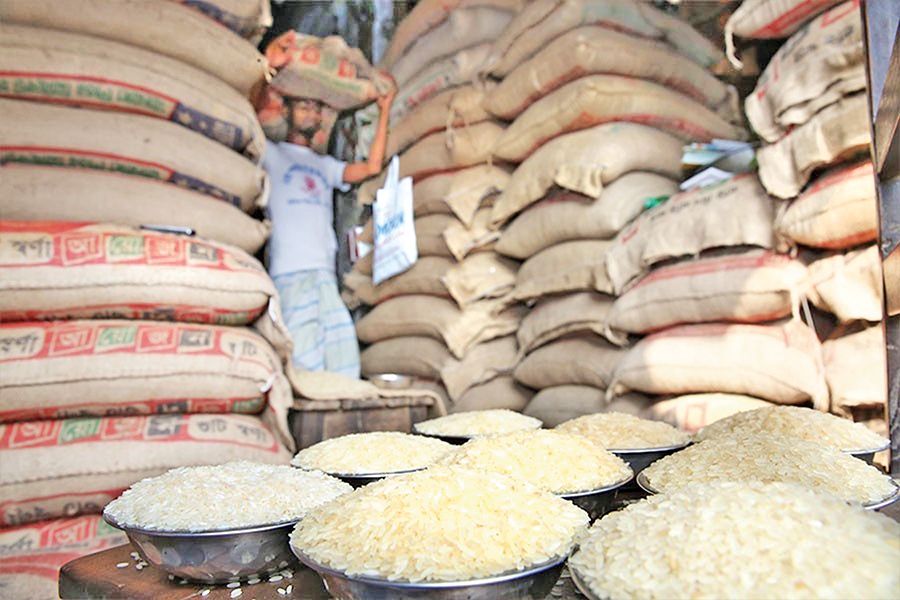
Published :
Updated :

Amid the ongoing import tightening, purchases of food grains from international markets increased slightly in the fiscal year (FY) 2022-23 mainly due to higher prices.
All other categories of imports, however, experienced negative growth in the FY, according to Bangladesh Bank (BB) statistics.
Early last FY, the central bank restricted imports as a strategy to stabilise the volatile foreign exchange market and maintain a healthy forex reserves in the country.
The imports of food grains, mainly rice and wheat, in FY '23 stood at around US$ 2.6 billion, up 1.5 per cent from that of the previous FY, data showed.
Rice imports amounted to $ 571 million and wheat $ 2.03 billion in the last FY.
People familiar with the grain imports told the FE that the import prices were higher in the last FY, leading to surges in the import payments. They said the import was lower than the previous year in terms of quantity.
"I know the quantity was lower but the prices were higher due to a halt in wheat exports from Ukraine," said Abul Bashar Chowdhury, chairman of Chattogram-based BSM Group.
According to the group, believed to be the biggest wheat importer in Bangladesh, all Bangladeshi importers have turned to Russia instead of Ukraine as a wheat-sourcing destination after the beginning of the war between the two countries in February 2022.
Wheat prices in the international market, however, fell to some extent by now, the importers said. The current price of the staple in the international market now ranges between $285 and $375 per tonne.
Bangladesh was one of the major importers of wheat from Ukraine and is used to largely depend on the black-sea country.
Blocking Ukraine's ability to export wheat, barley, corn, and other grains has opened up an opportunity for Moscow to seize a greater share of the global grains' markets, local importers said.
Already the world's largest wheat exporter, Russia produced a record grain harvest in 2022-23, generating 23 per cent more volume than it had on average in the previous five years.
However, Bangladesh's food procurement budget was up by 128 per cent to Tk 16 billion in FY 2023 on the back of the higher prices of the staples in the international market. It was originally allocated Tk 7.02 billion for the last fiscal year, according to budget documents.
But the internal procurements by the government were slashed by nearly 29 per cent to Tk 17.4 billion in the fiscal year, following a bumper production of the main staple in the country.
However, the imports of consumer goods dropped by 2.2 per cent to $5.7 billion in FY 2023, intermediate goods declined by nearly 20 per cent to $ 44.3 billion, and capital goods fell by over 17 per cent to $ 13.6 billion in the FY under review.
jasimharoon@yahoo.com


 For all latest news, follow The Financial Express Google News channel.
For all latest news, follow The Financial Express Google News channel.